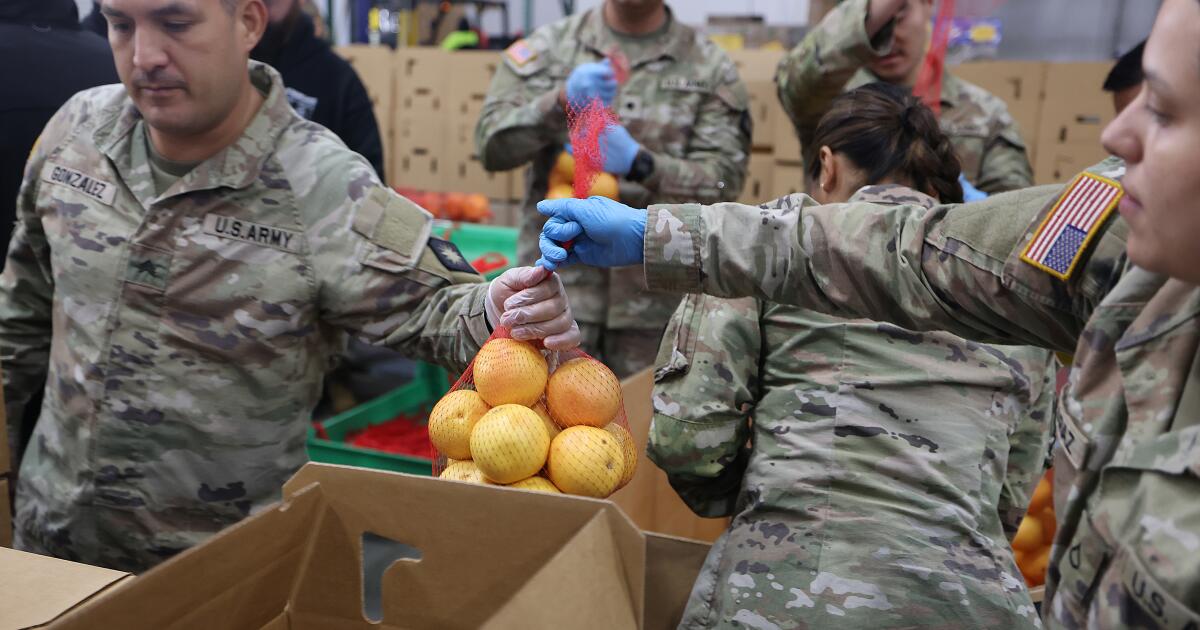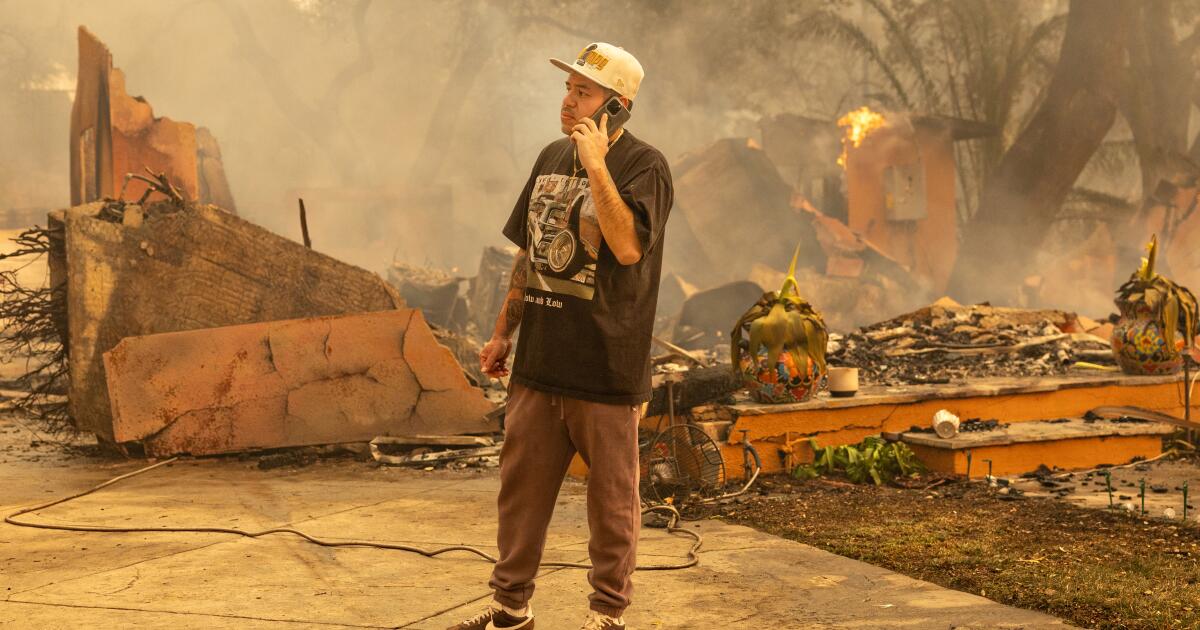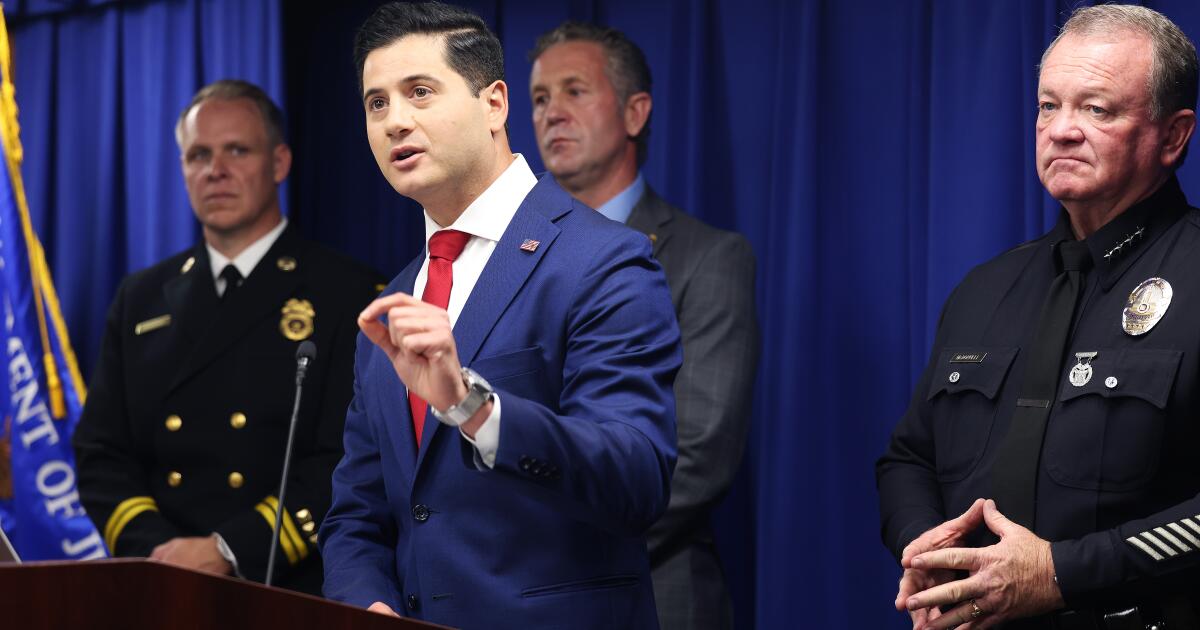Judges order USDA to resume SNAP funding, but hungry families won’t receive immediate aid

In separate orders Friday, two federal judges told the U.S. Department of Agriculture that it must start billions of dollars in emergency funding to provide federal food aid to poor American families despite the federal shutdown, but gave the agency until Monday to decide how to do it.
Both Obama-appointed judges rejected the Trump administration’s argument that more than $5 billion in USDA emergency funds cannot legally be used to continue Supplemental Nutrition Assistance Program benefits for nearly 42 million people — about 1 in 8 Americans — while the federal government remains shut down. But neither is clear how exactly aid should be provided, or when it will arrive for the millions of families who will lose benefits on Saturday.
Both orders came out almost simultaneously on Friday.
In Massachusetts, U.S. District Judge Indra Talwani blocked California and a coalition of 24 other Democrat-led states from granting a temporary restraining order they had requested. But she ruled that the states were likely to succeed in their arguments that the USDA’s complete freeze on SNAP benefits — despite billions in emergency funds on hand — was illegal.
Talwani gave the USDA until Monday to tell her whether they will allow “only a reduction in SNAP benefits” using emergency funding — which the USDA says is $8.5 billion to $9 billion needed for all November benefits — or will adopt “full SNAP benefits” using contingency funds and additional available funds.
Separately, in Rhode Island, U.S. District Judge John McConnell granted a temporary restraining order requested by the nonprofit organizations, ruling from the bench that SNAP must be funded with at least prospective funds “as soon as possible” and asking for a progress update by Monday.
California Atty. Gen. Rob Bonta — whose office helped bring the state’s lawsuit — praised the two court decisions, saying SNAP benefits “provide a hunger safety net” to 5.5 million Californians. “Simply put, the risk cannot be overestimated.”
Skye Perryman, president and CEO of Democracy Forward, which represents nonprofit groups, said the ruling in the case “affirms what both the law and basic decency require” and that “millions of families, elders and veterans have been used as leverage in the political struggle.”
It is unclear whether the agency will appeal the order. President Trump wrote in a post on his Truth social platform that he does not want Americans to go hungry and that he has instructed government lawmakers to “ask the court to clarify how we can legally fund SNAP as soon as possible” because it would be his “honor” to provide funding “with appropriate legal guidance from the court.”
“It’s already delayed enough because of Democrats keeping the government shut down through monthly payment deadlines and even if we get immediate guidance, it will unfortunately be delayed while states get paid,” Trump wrote, before urging SNAP recipients to call Democrats in Congress and demand they end the shutdown.
While the orders were a win for states and the nation’s SNAP recipients, they don’t mean all recipients will be spared a shortfall in their food assistance, state officials stressed. State and local food banks continued to prepare for the flood of needs Saturday.
Asked Thursday if a decision in favor of states would mean SNAP funds would be immediately loaded onto CalFresh and other benefits cards, Bonta said “the answer is no, unfortunately.”
“Our best guess is this [SNAP benefit] The cards can be loaded and used in about a week,” he said, calling the delay “a problem”.
“There might be a week where people are hungry and need food,” he said. For new applicants to the program, it may take longer, he said.
The orders came as the month-long shutdown continued without an immediate end on Friday.
They came after Trump called on the Senate on Thursday to end the filibuster for the first time, a long-standing rule that requires 60 votes to overcome objections to legislation. The bill has traditionally been favored by lawmakers as a means of preventing particularly partisan action, and is currently being used by Democrats to resist the demands of the current 53-seat Republican majority.
Los Angeles Regional Food Bank CEO Michael Flood, standing next to Bonta as members of the California National Guard worked behind them on Thursday to fill food boxes, said his organization is preparing for large weekend rallies, similar to those seen during the height of the COVID-19 pandemic.
“It’s kind of a disaster,” Flood said.
“California’s 5.5 million children and adults, 1.5 million in La County alone, will be left high and dry — illegally, unnecessarily, in a way that is morally bankrupt,” Bonta said.
Bonta blamed Trump and his administration for the shutdown, saying the USDA broke the law by not spending emergency funds to continue payments.
Bonta said SNAP benefits have never been disrupted during previous federal government shutdowns, and should never have been disrupted during this one.
“It was preventable,” he said. “Trump created this problem.”
The Trump administration has blamed the shutdown and significant disruption to SNAP benefits entirely on Democrats in Congress, who have blocked short-term spending measures to restart the government and fund SNAP. Democrats are pressing Republicans to stop major cuts to subsidies that help millions of Americans afford health insurance.
Abigail Jackson, a White House spokeswoman, previously told the Times that Democrats should be the ones asking “when will it shut down,” because “they are the ones who decided to shut down the government so they can use working Americans and SNAP benefits as leverage to pursue their extreme leftist agenda.”
“Americans are suffering because of the Democrats,” Jackson said.
In their opposition to the state’s request for a temporary restraining order requiring the distribution of funds, USDA lawyers argued that using emergency funds to cover November’s SNAP benefits would eliminate funds that “provide critical support in the event of natural disasters and other uncontrollable disasters” and could actually cause more disruption.
They wrote that SNAP needs between $8.5 billion and $9 billion each month, and the USDA contingency fund only has about $5.25 billion, meaning it could not fully fund the November benefits even if it released emergency funding. Meanwhile, “a partial payment has never been made — and for good reason,” because it would have required each state to recalculate benefits for recipients and then reconfigure their systems to provide the new amount, they wrote.
It would take weeks, if it could be done at all, and then it would have to be withdrawn at normal levels to spread December’s gains, assuming the dam would have been lifted by then, they wrote.
They argued that simply suspending benefits to be reissued immediately when the shutdown ends is a more prudent and less disruptive course of action.
In addition to suing the administration, California and its leaders rushed to make sure hungry families have something to eat in the coming days. Governor Gavin Newsom directed $80 million to food banks to stock up on provisions, and activated the National Guard to help pack food for those who need it.
Countries are also working to meet the need, including directing additional funding to food banks and other resource centers and asking for help from partners in the private sector.
Dozens of organizations in California have written to Newsom urging him to use state funds to fully cover lost federal benefits, to avoid a “crisis of unimaginable magnitude,” but Newsom has suggested that is unlikely given the amount of funding.
SNAP served about 41.7 million people in 2024, according to the USDA, at an annual cost of nearly $100 billion. Children and the elderly account for more than 63% of California recipients.
Associated Press contributed to this report.




Post Comment